Premature Menopause Treatments: Can Early Menopause be Treated?
Fertility Treatment
Menopause is a natural transition in a woman's life, typically occurring in her late 40s to early 50s, marking the end of reproductive capability. However, when menopause occurs prematurely, before the age of 40, it can pose unique challenges to women's health and fertility. This condition, known as early menopause, necessitates prompt medical attention and intervention. Early menopause can be triggered by various factors, including genetic predisposition, lifestyle choices, and underlying health conditions such as polycystic ovary syndrome (PCOS).
PCOS is a hormonal disorder characterized by irregular menstrual cycles, excess androgen levels, and ovarian cysts. Managing PCOS involves a multidisciplinary approach, including lifestyle modifications, such as maintaining a healthy weight and diet, as well as medications to regulate hormone levels and improve insulin sensitivity. In addition to managing PCOS symptoms, fertility treatments such as ovulation induction medications or assisted reproductive technologies like in vitro fertilization (IVF) may be recommended to help women with PCOS conceive.
Early detection and timely treatment of PCOS and related conditions are crucial in preserving fertility and overall reproductive health, underscoring the importance of regular medical check-ups and proactive health management.

Is There a Definitive Treatment for Premature Menopause?
Although a complete and effective solution for the definitive treatment of early menopause has not yet been provided, modern medical methods can be used to treat and correct problems such as menstrual irregularity, follicle maturation disorder, and irregular ovulation. Female infertility caused by early menopause can be treated with the help of techniques such as the injection of ovarian stimulation drugs or the use of donated eggs.
Managing premature and early menopause involves understanding the implications of diminished ovarian reserve and exploring options such as hormone replacement therapy to alleviate symptoms and protect against associated health risks.
Also, taking advantage of hormone therapy can prevent premature menopause by reducing the risk of osteoporosis and heart diseases. In general, premature menopause treatment methods include:
- Hormone therapy;
- Birth control pills;
- Antidepressant pills;
- Lubricant gel;
- Ovarian PRP;
- Egg donation;
- Calcium and vitamin D;
- Vaginal laser.
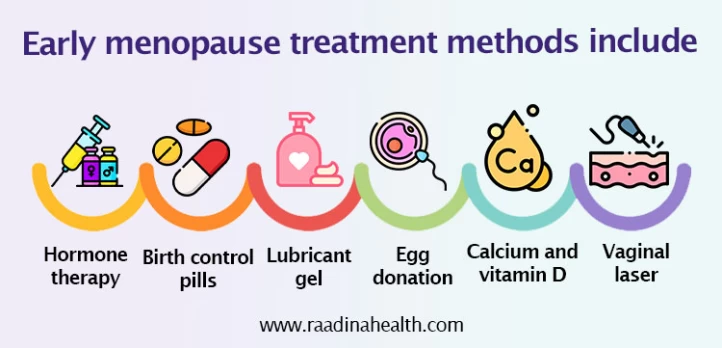
Hormone therapy
Hormone therapy is an effective way to relieve symptoms of premature menopause and help women's fertility return. Consumption of estrogen and progesterone supplements and sometimes testosterone can prevent osteoporosis by decreasing symptoms and side effects of menopause. Also, using these hormones as medicine regularizes the menstrual periods.
Hormone therapy helps to reduce menopausal hot flashes, improve the side effects caused by the decrease of estrogen in the body, and also reduce the symptoms of incontinence, helping women for whom other treatment methods are not effective. It should be noted that the dosage of these hormones prescribed for premature menopause treatment is slightly higher than the dosage prescribed for menopausal women. Therefore, hormone therapy itself can also have side effects.
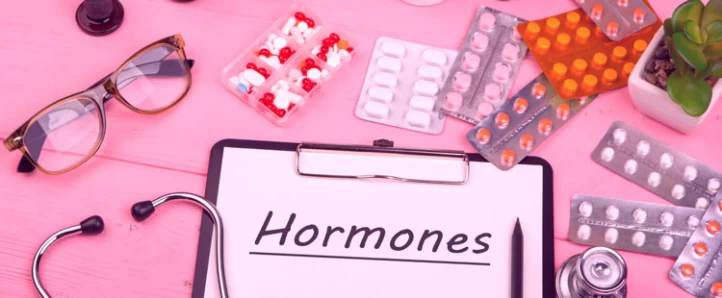
Birth control pills
Taking birth control pills is recommended only as a relief for symptoms such as hot flashes, but it is not possible to treat premature menopause with LD pills. In addition, due to their side effects, birth control pills have to be taken under the supervision of a doctor.
Antidepressant pills
Some serotonin inhibitors, which are used as antidepressants, are effective in improving the symptoms of early menopause (such as a 60% reduction in hot flashes). Of course, these drugs should also be taken under the supervision of a doctor on schedule.
Lubricants
Lubricants or lubricant gels are suitable tools to solve the problem of vaginal dryness caused by menopause. Vaginal dryness, in addition to causing discomfort for women, reduces the quality of sex between partners.
For this purpose, non-hormonal moisturizing gels and creams are recommended. On the other hand, it is possible to improve vaginal dryness by adjusting the frequency and duration of sexual intercourse while helping to increase blood circulation in the reproductive organs.
Treatment of premature menopause with RF
Using RF for treating premature menopause can improve the symptoms of the disease and treat the problems caused by it. The RF treatment heats the vaginal tissue and stimulates collagen production in the vagina, which results in relieving the unpleasant symptoms and side effects of early menopause, like vaginal dryness, vaginal infection, and sexual reluctance for a relatively long time.
It should be noted that RF treatment has no age limit and is performed in a few sessions. The results can be seen in a short period of time. Also, this method does not require anesthesia; no wound, bleeding, or pain is expected.
Ovarian PRP
Using stem blood cells, enriched platelets, or PRP and injecting them into the ovaries can improve and strengthen the ovaries and the ovulation process to some extent. However, if the disease progresses, this strategy does not significantly increase women's fertility.
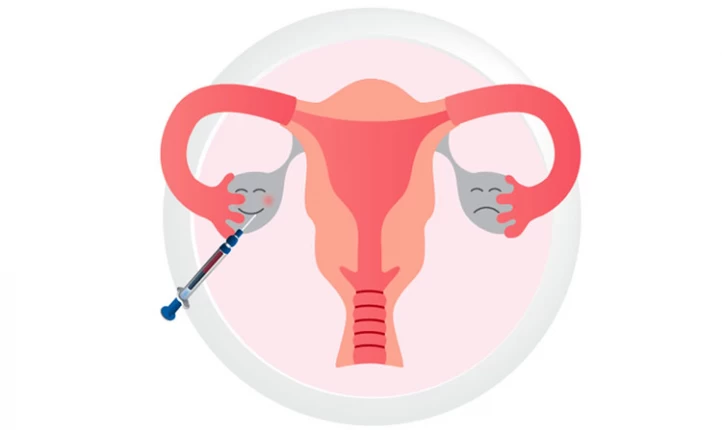
Egg donation
In many cases, premature menopause reduces women's fertility, so no more mature and fertile eggs are developed for pregnancy. In such a situation, you can experience pregnancy again and have healthy children by using some alternative methods such as egg donation.
There is a high chance for a woman to go through early menopause if one of her close relatives has experienced it. So, freezing an egg is recommended for that woman if she intends to get pregnant.
Calcium and vitamin D
It is important to take vitamin D and calcium during menopause since this condition can lead to osteoporosis and muscle pain. Vitamin D and calcium can be provided in the form of supplements or any type of foods rich in these two substances.
Vaginal laser
Laser therapy is another method used to improve menopause symptoms, especially vaginal dryness and atrophy. The vaginal laser helps to increase the quality of sexual intercourse by eliminating vaginal dryness and reducing sexual pain. It is considered a suitable alternative solution for menopausal women who are dealing with cancer.
Home Remedies for Treating Premature Menopause
Along with pharmaceutical and medical treatments, some traditional remedies can improve the symptoms of premature menopause and delay the infertility caused by it. For example, in some cases, symptoms such as night sweats can be reduced by wearing less and thin clothes and drinking cool beverages. The following methods are among the home remedies for treating early menopause:

Regular exercise
Exercising is one of the factors affecting overall health, and it can also be useful in treating premature menopause. Regular exercises such as the Kegel exercise, which increases the strength of the pelvic floor muscles and reduces urinary incontinence, can help improve the quality of sexual intercourse.
Massage and deep breathing techniques also help to reduce the side effects of early menopause. You can consult a specialist to get a suitable tai chi and yoga training program. All these sports, while maintaining weight in the right range, reduce stress and anxiety, eliminate constant fatigue during menopause, reduce the risk of cardiovascular diseases, and reduce the risk of diabetes.
Stop smoking and alcohol
Consumption of tobacco and any type of traditional or industrial drugs due to its destructive effect on body organs, especially reproductive organs, not only has no positive effect on early menopause but also increases its severity. Stopping smoking and drinking alcohol, along with avoiding stress and anxiety, will play an effective role in reducing the side effects of premature menopause and also reduce the risk of heart disease and heart attack.
What to Eat to Treat Premature Menopause?
The diet you follow during menopause plays an important role in relieving its symptoms. For example, reducing the consumption of caffeinated beverages is helpful in treating the symptoms of early menopause. It is also recommended to increase the consumption of legumes, fruits, and fresh vegetables to help bone health and prevent weight gain.
Avoiding certain foods, such as fast foods, sugary and very sweet foods, and spicy foods, may help reduce some of the symptoms linked to menopause. Foods rich in estrogen, such as flax seeds, soybeans, beans, and sesame seeds, are effective in controlling hot flashes and other menopausal symptoms. Also, it is better to consider drinking enough water, eating protein-rich foods, and taking special food supplements in your daily diet.

Is Hormone Therapy Dangerous for Menopause?
As mentioned, one of the ways to control the symptoms of early menopause is "hormone therapy"; however, this method, despite removing side effects such as hot flashes, may bring some risks. Due to the body's sensitivity to hormones, the type and amount of injectable drugs in this method should be determined only according to the doctor's prescription.
In the past, it was thought that this technique, which replaces the female hormones in women's bodies and compensates for these hormones’ deficiency after menopause, is useful in preventing dementia and heart diseases in women. However, new research shows that not only do hormonal treatments not play a role in this field, but they also cause serious harm to some women experiencing menopause.
Therefore, today, the use of hormone therapy is only prescribed for a certain group of women. For example, hormone treatment is not possible for women with cancer who have found symptoms of early menopause. Considering these cases, some points should be considered during hormone treatment. If the doctor confirms the need for hormonal treatment, estrogen drugs are available in the form of tablets, gels, suppositories, creams, vaginal rings, etc.
If the main problem of the person is vaginal symptoms and vaginal changes, it is better to use low-dose estrogen in the form of vaginal pills, vaginal creams, or vaginal rings instead of oral pills. In any case, the treatment should be started with low doses of hormones, except in women under the age of 45, when adequate amounts of hormones and longer treatment periods are recommended to deal with the long-term effects of estrogen deficiency.
In addition, regular doctor visits ensure that the benefits of hormone therapy outweigh its risks. If necessary, the doctor recommends that the person perform screenings such as mammography or pelvic examinations.
Contraindications to the Use of Hormones
In the following cases, it is usually not recommended to use hormone therapy to deal with early menopause:
- Abnormal vaginal bleeding;
- Having or being suspected of having active liver or gallbladder diseases;
- Having or being suspected of having uterine cancer or breast cancer;
- Having a cardiovascular disease or high risk of this disease in the person.
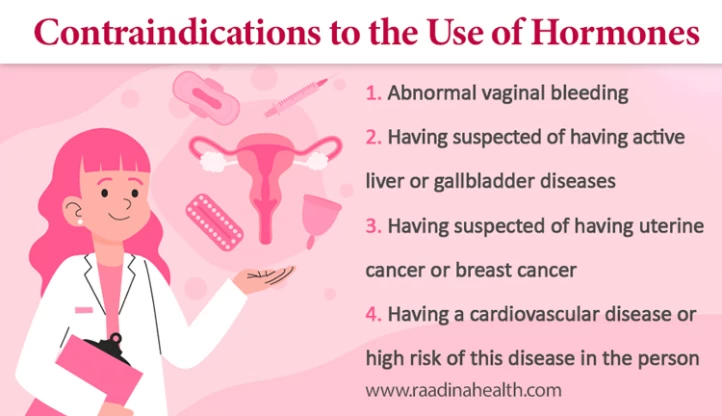
How Is Premature Menopause Diagnosed?
Paying attention to the regularity of the menstrual cycle is important in diagnosing and treating premature menopause quickly. Stopping the period cycle along with severe hot flashes in girls or young women would require an immediate doctor's examination. The specialist prescribes special tests in addition to asking the person about their menstrual cycle, history of ovarian surgery, history of chemotherapy or radiation therapy, family history, pelvic infection, hormonal failure, etc.
One of these tests is the FSH hormone test, which is performed twice with a gap of one month. The normal amount of this hormone in the blood is between 10 and 15 ml per unit, and if this amount elevates to 40 ml, it will indicate a disease.
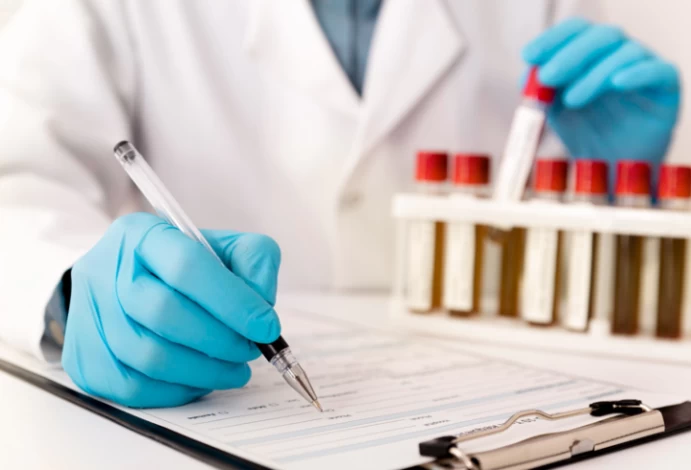
Ways to Reduce Early Menopause Symptoms
There are simple measures that can reduce the severity of early menopause symptoms as well as the pain and discomfort caused by it. The best thing to do is to reduce the amount of daily stress and anxiety and do massage and deep breathing techniques. By wearing fewer clothes and drinking cold beverages, you can reduce the severity of hot flashes, which is one of the common symptoms of menopause.
In addition, following a high-fiber diet and avoiding alcohol and tobacco prevent the aggravation of disease symptoms. It should be noted that the use of lubricant gel and moisturizers also help to improve vaginal dryness.
Early Menopause and Ovarian Reserve
Early menopause can have significant implications for women's reproductive health and overall well-being. One crucial aspect affected by early menopause is ovarian reserve, which refers to the number and quality of a woman's remaining eggs. Decreased ovarian reserve can lead to difficulties in conceiving naturally and may require assisted reproductive technologies such as in vitro fertilization (IVF) for those desiring pregnancy. Factors contributing to early menopause and diminished ovarian reserve include genetic predisposition, autoimmune disorders, certain medical treatments like chemotherapy or radiation therapy, as well as lifestyle factors such as smoking and extreme exercise. Understanding the complexities of early menopause and its impact on ovarian reserve is vital for providing appropriate medical interventions and support to affected individuals.
Furthermore, early menopause and diminished ovarian reserve can have broader implications beyond fertility. Hormonal changes associated with early menopause may increase the risk of developing osteoporosis, cardiovascular disease, and cognitive decline later in life. Additionally, the psychological impact of facing infertility at a younger age can be profound, leading to feelings of loss, grief, and altered identity. Therefore, comprehensive care for women experiencing early menopause should address not only their reproductive health but also their physical and emotional well-being. This may involve hormone replacement therapy to manage symptoms such as hot flashes and mood swings, as well as counseling and support groups to help navigate the emotional challenges associated with this condition. By addressing the multifaceted aspects of early menopause and diminished ovarian reserve, healthcare providers can better support women in maintaining their overall health and quality of life.
Final Word
Premature menopause can be a challenging condition for women under 40, leading to reduced female fertility and potential long-term complications. While there is no known cure, various ways exist to manage symptoms and reduce the condition's impact.
It's important to remember that menopause doesn't necessarily mean the end of the road for having children, with modern medical techniques such as egg freezing offering new possibilities. By adopting a positive mindset and preparing for the changes ahead, women can navigate menopause with greater ease and confidence.
Frequently Asked Questions about Premature Menopause Treatment
Can Soy Be Effective in the Treatment of Premature Menopause?
As a phytoestrogen, soy mimics the effects of estrogen in the body, providing relief from hot flashes and other discomforts. However, it is important to note that some individuals may experience side effects such as stomach discomfort and diarrhea
Can Menopause Be Delayed?
Premature menopause is a natural occurrence that cannot be delayed or reversed. While some treatments may result in the resumption of menstruation, these cases are rare and caused by hormonal imbalances. It is important to note that women experiencing premature menopause should continue to use contraception if they do not wish to get pregnant until their symptoms have completely subsided.
Can You Get Pregnant After Menopause?
Natural pregnancy after menopause is not possible, as women's fertility typically decreases after the age of 42 and diminishes by the age of 50. However, there is still a chance of fertility in the early stages of menopause. Women who have gone through natural menopause can still become mothers through alternative solutions such as egg donation, embryo donation, or using a surrogate (if they freeze their eggs at a younger age).
What helps with menopause hot flashes?
Hot flashes are a natural and common symptom of menopause that can be effectively managed with hormone therapy. However, due to the potential side effects of hormonal treatments, it is recommended that women explore home remedies to alleviate hot flashes. It is important to note that this symptom typically resolves within two years.
Does Hormone Replacement Therapy in Early Menopause Treatment Increase the Risk of Breast Cancer?
Estrogen-only hormone replacement therapy can slightly increase the risk of breast cancer (by up to 2%). Therefore, it is considered a safe treatment method. However, it should not be used for women who have breast or uterine cancer. Women undergoing hormone replacement therapy should also undergo regular screenings for breast cancer to ensure early detection and treatment if necessary.
How can I stop early menopause?
While menopause itself can’t always be stopped, hormone replacement therapy (HRT), lifestyle changes, and a nutrient-rich diet may help delay symptoms and protect bone and heart health.
What are the first signs of early menopause at 35?
Common signs include irregular periods, hot flashes, night sweats, vaginal dryness, and sometimes mood swings or reduced fertility.
Can menopause be reversed to get pregnant?
Menopause cannot be fully reversed, but treatments such as donor eggs with IVF can help women achieve pregnancy even after premature menopause.
What are the risks of premature menopause?
It increases the risk of osteoporosis, cardiovascular disease, and infertility, making early diagnosis and management important.




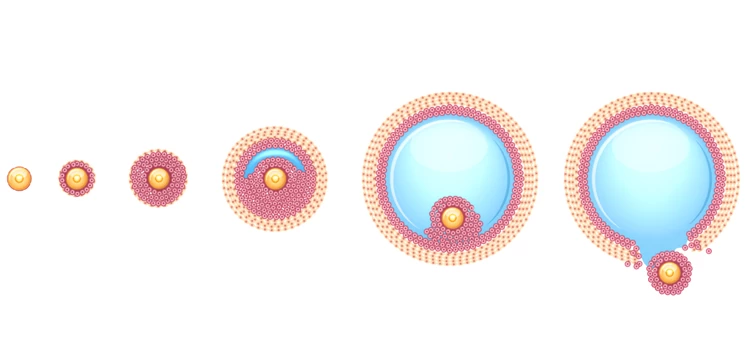
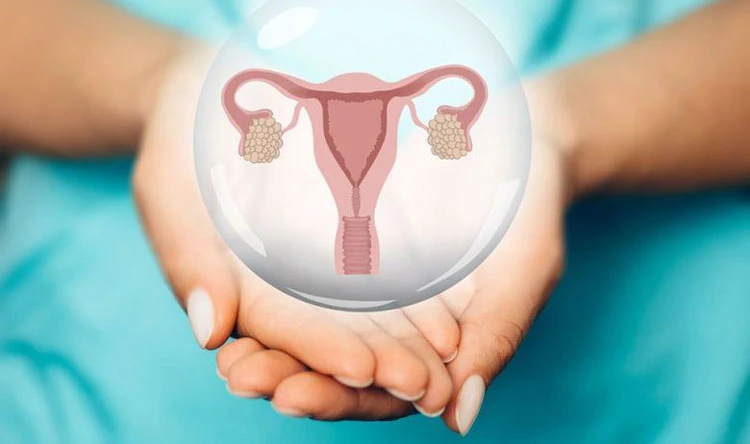
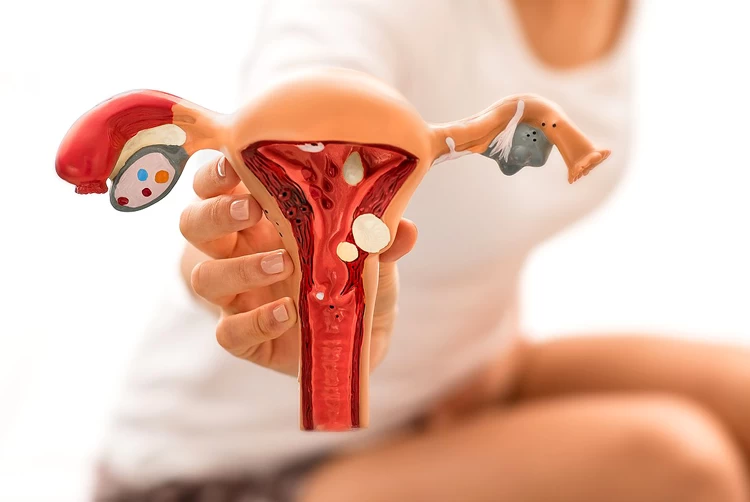





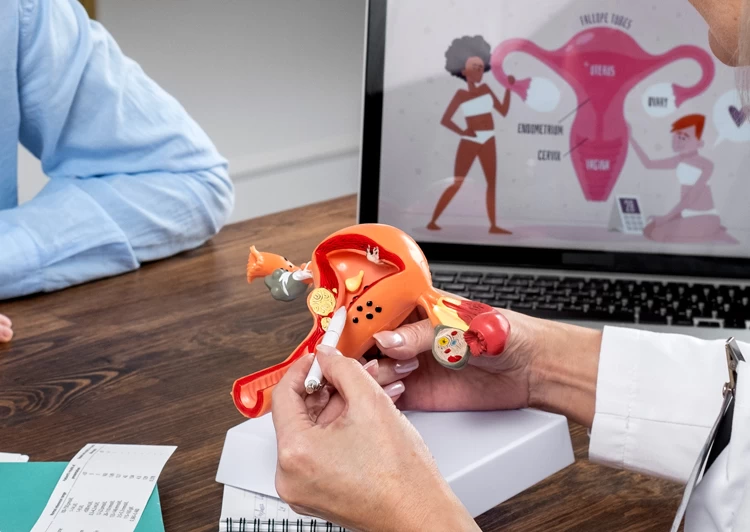
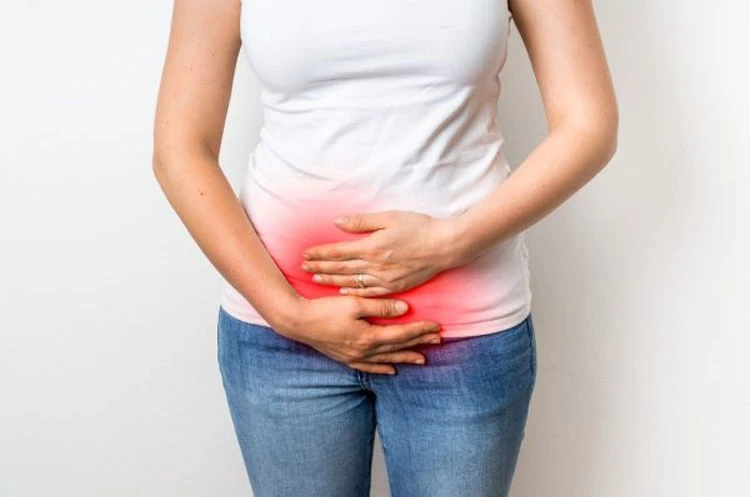

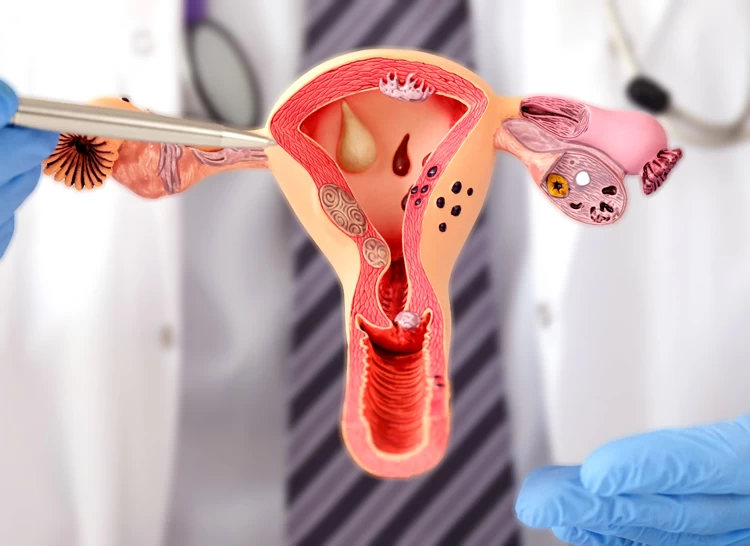

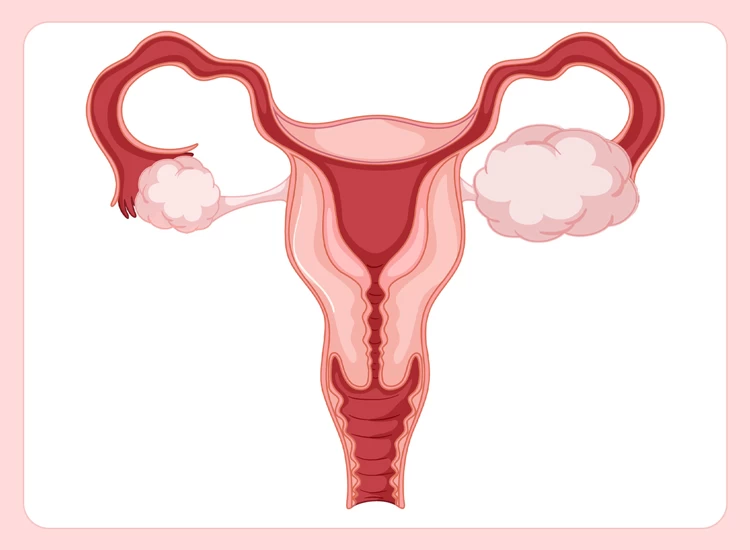
No reviews
Your comment